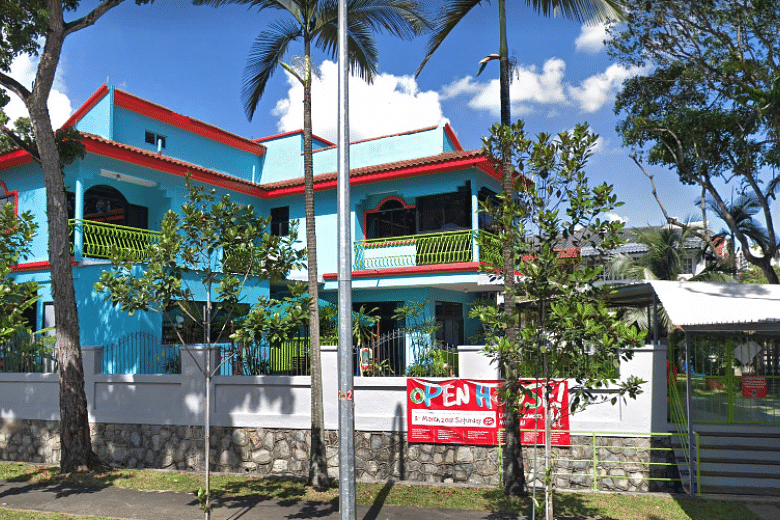SINGAPORE - Two more pre-school staff have been diagnosed with Covid-19, as new cases in the community edged up to 11.
Both the employees had gone to work after their swab tests, with the 54-year-old Singaporean woman returning to Shaws Preschool in Lorong Chuan. The other infected pre-school staff is a 24-year-old Filipino who worked in the PCF Sparkletots @ Gambas, said the Ministry of Health in its daily update on Saturday (May 23).
Pre-school staff are being actively screened for the virus ahead of the centres reopening on June 2, and the two newly confirmed cases are among the seven pre-school staff who have tested positive for the infection, said the Early Childhood Development Agency, in a statement on Saturday night.
About 15,300, or more than 99 per cent, of all pre-school staff who had undergone testing so far have tested negative, said the agency. The one-time swab tests started on May 15 and are scheduled to complete by end-May.
Another newly confirmed case is a 20-year-old Singaporean man who worked at 31 Sungei Kadut Avenue and Cochrane Lodge I. Both are worker dormitories that have been gazetted as isolation areas. He had worked at the dormitories after the onset of his symptoms on May 16.
Aside from another unlinked case and the two pre-school employees, the rest of the 11 cases in the community are linked to existing clusters or contacts.
They are among 642 new Covid-19 cases confirmed on Saturday. Foreign workers living in dormitories form the bulk of the remaining cases.
As of Saturday, cases in Singapore total 31,068.
Two new clusters have also been discovered, through epidemiological investigations and contact tracing.
Five earlier confirmed cases are now part of a cluster on 28 Kian Teck Road, and another 15 confirmed cases form a new cluster on 121 Tuas View Walk 1.
However, the number of unlinked cases in the community has also increased, from an average of 1 case per day in the week before, to an average of 2 per day in the past week. The average number of new daily community cases - which does not include foreign workers staying in dormitories - has also risen from five cases two weeks ago to seven in the past week.
MOH said this is partly due to active surveillance and screening of nursing home residents and pre-school staff, resulting in more cases being picked up in the past week.
On Friday, two of the four new Singaporean Covid-19 cases were pre-school staff.
On Saturday, 927 more Covid-19 patients were discharged from hospitals and community facilities.
This means that 13,873, or about 45 per cent, of Covid-19 patients in Singapore have fully recovered from the disease.
The number of patients discharged has exceeded new patients in the past eleven days.
Eight of the 711 patients still in hospital are in critical condition in intensive care.
Singapore's strategy to gradually re-open the economy in phases is contingent on the community transmission rate remaining low and stable, and if the dormitory situation remains under control.
National Development Minister Lawrence Wong reiterated on Saturday that employees should only return to workplaces after June 1, if they need specialised equipment and machinery that cannot be accessed from home, or if they need to fulfil legal requirements.
This means that most employees working in an office setting will continue working from home.
Mr Wong, who co-chairs the multi ministry task force handling the Covid-19 outbreak, said that many employers and managers will need to adjust their mindsets to this new normal.
For those who do have to be onsite, employers should consider if staff really need to go in every day. They could arrange for employees to work from home a few days a week.
These employers should also offer staggered work hours, and must ensure that the work environment is safe with measures such as good ventilation, high hygiene standards, and safe distancing in place.
"All these workplace measures are critical in our fight against Covid-19 - they will reduce the need for daily movement of people, and minimise the risks of the virus flaring up again," he said.
To date, close to 9 percent, or 28,806, of the 323,000 migrant workers migrant workers staying in dormitories have tested positive for Covid-19.
Twenty-three patients have died from Covid-19 complications here and nine who tested positive have died from other causes.
Globally, the outbreak, which began in December last year, has infected nearly 5.3 million people. Some 339,000 have died.











